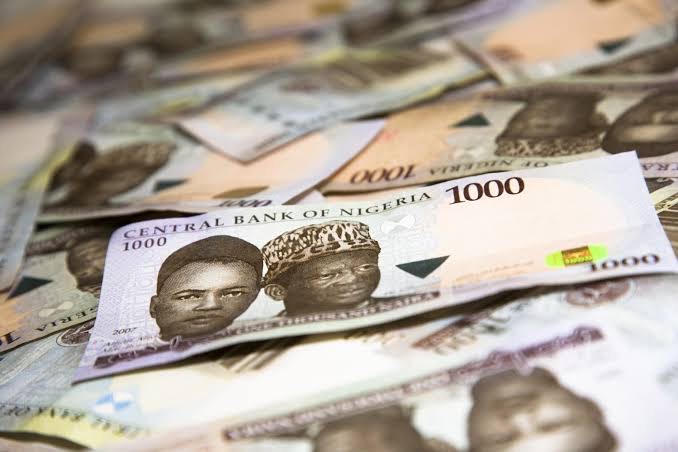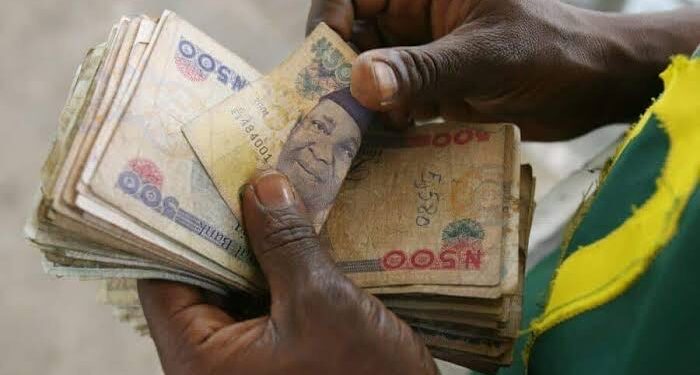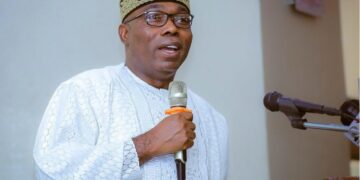According to a report by the National Bureau of Statistics (NBS), in 2023, Nigerians paid over ₦700 billion in bribes to public officials.
According to the bureau, the average cash bribe in 2023 was ₦8,284, up from ₦5,754 in 2019. However, when you take into account inflation and what that money can buy, the average amount of bribes in 2023 was actually 29% lower than in 2019. The estimated total amount of cash bribes paid in 2023 was about ₦721 billion, which is equivalent to US$1.26 billion and 0.35% of Nigeria’s Gross Domestic Product (GDP).
The report also indicates that cash remains the primary form of bribes, with over 95% of bribes paid in cash or by remittance. This is a slight increase from 2019, highlighting bribery’s continued reliance on monetary transactions.
Officials continue to blatantly request bribes, albeit less frequently than before. In 2023, direct bribe requests from officials accounted for 52% of all bribery transactions, up from 60% in 2019.

Indirect requests accounted for 23%, while voluntary payments to expedite procedures accounted for 9%. Interestingly, 8% of bribes were given without prior request as a sign of gratitude for services rendered.
The timing of bribe payments has also changed. In 2023, 58% of bribes were paid before the service was provided, a significant decrease from 67% in 2019. Conversely, 22% of bribes were paid after the service was provided (compared to 15% in 2019).
Post-bribery combined with indirect requests from officials may indicate that officials are becoming less aggressive in requesting bribes and may indicate a gradual shift in the balance of power between officials and the public in favor of the latter.
Most bribes were paid in public places, with 35% in civil servants’ offices and 36% on the street. Additionally, 11 percent of bribes were paid in the respondents’ homes, while 7 percent were paid in public buildings such as restaurants, shopping centers, and train stations.
Senate rejects bill to repeal foreign exchange law About 87 million bribes were paid in 2023, a significant decrease from the 117 million bribes paid in 2019. This equates to an average of 0.8 bribes per adult, indicating a positive trend towards reducing corruption.

The report also stated that about 56% of Nigerians had at least one contact with a public official in the 12 months preceding the survey. This represents a decrease in contact rates (63%) since 2019, across most types of public officials and in all regions.
Contact with public officials remains higher in urban areas (61%) than in rural areas (52%). In 2023, the highest percentage of Nigerians had contact with health and utility workers, at 30% and 24%, respectively. Police officers came in third with 20% of contacts.
“The incidence of bribery is, on average, higher in rural areas than in urban areas. In 2023, urban bribe payers paid an average of 4.5 bribes, while those living in rural areas paid an average of 5.8 bribes.”
“Bribery in the private sector has increased but remains less prevalent than in the public sector. The frequency of paying bribes to private sector actors (e.g. doctors in private hospitals and employees of private companies) has increased significantly, with the percentage of citizens who had at least one contact with private sector actors increasing from 6% in 2019 to 14% in 2023.
The increase in bribery in the private sector from 2019 to 2023 was observed in all regions and for all types of private employees.
“Despite this increase, the prevalence of bribery in the public sector remains roughly twice as high as in the private sector. Moreover, citizens’ contact with the public sector is roughly twice as high (56%) as with private sector actors (28%).
“Citizens are almost twice as likely to have contact with the public sector than with actors in the private (56%) and public sectors (28%)”, The NBS survey highlights the ongoing corruption problem in Nigeria and points to the need for continued efforts to combat bribery and promote transparency in the public service.


































